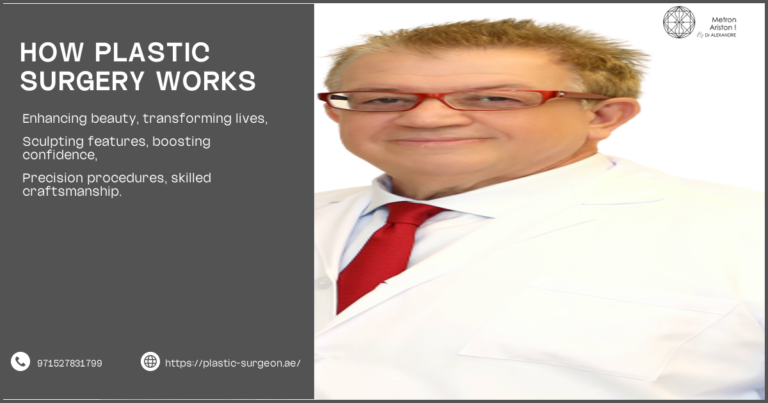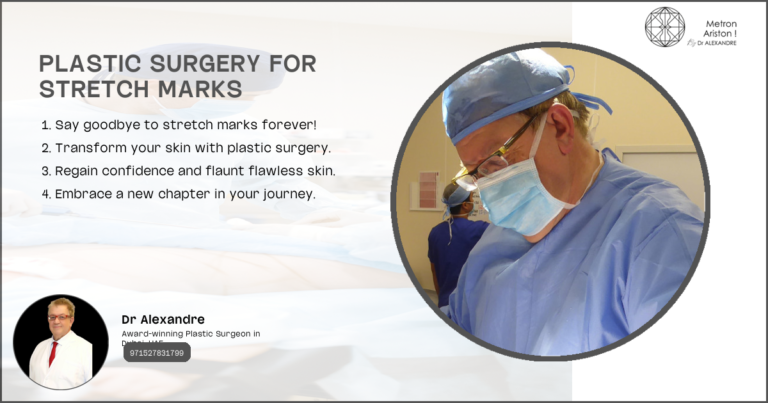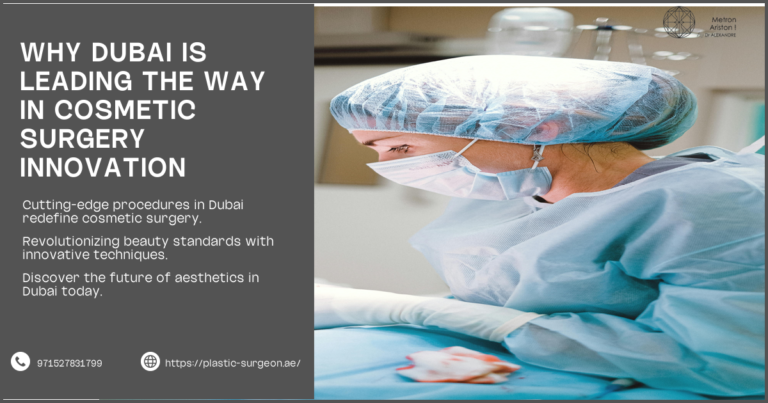How Do You Choose the Best Plastic Surgeon for Your Procedure
Selecting the right plastic surgeon is a crucial decision that can significantly impact the outcome of your procedure. Whether you’re considering a facelift, breast augmentation, or any other cosmetic surgery, it’s essential to choose a qualified and experienced professional who can help you achieve your desired results safely and effectively. In this comprehensive guide, we’ll explore the key factors to consider when choosing the best plastic surgeon for your procedure.
What qualifications should you look for in a plastic surgeon
When evaluating potential plastic surgeons, it’s important to consider their qualifications and credentials. Here are three key aspects to focus on:
Board certification and its importance
Board certification is a crucial indicator of a plastic surgeon’s expertise and commitment to their field. Dr. Alexandre emphasizes, “Board certification demonstrates that a surgeon has undergone rigorous training and passed comprehensive exams in their specialty.” The American Board of Plastic Surgery (ABPS) is the gold standard for certification in plastic surgery.
To verify a surgeon’s board certification:
- Check the ABPS website
- Contact your state medical board
- Look for membership in professional organizations like the American Society of Plastic Surgeons (ASPS)
Relevant experience in specific procedures
Experience matters when it comes to plastic surgery. Look for a surgeon who has extensive experience in the specific procedure you’re interested in. Dr. Alexandre advises, “Ask about the number of times they’ve performed the procedure and their success rates.”
Consider the following when evaluating a surgeon’s experience:
- Years of practice in plastic surgery
- Specialization in your desired procedure
- Before and after photos of previous patients
Continuing education and training
The field of plastic surgery is constantly evolving, with new techniques and technologies emerging regularly. A committed plastic surgeon should engage in ongoing education and training to stay current with the latest advancements.
Look for surgeons who:
- Attend conferences and workshops
- Participate in research or clinical trials
- Teach or lecture in their field
| Qualification | Why It’s Important |
| Board Certification | Ensures rigorous training and expertise |
| Relevant Experience | Indicates proficiency in specific procedures |
| Continuing Education | Demonstrates commitment to staying current |
How to evaluate a plastic surgeon’s aesthetic sense
A plastic surgeon’s technical skills are crucial, but their aesthetic sense is equally important. Here’s how to assess their artistic vision:
Reviewing before and after photos
Examining a surgeon’s portfolio of before and after photos can give you a good idea of their aesthetic style and the quality of their work. Dr. Alexandre suggests, “Look for consistency in results and patients with similar features to yours.”
When reviewing photos:
- Pay attention to symmetry and natural-looking results
- Look for patients with similar body types or facial features to yours
- Ask to see multiple examples of the specific procedure you’re interested in
Assessing the surgeon’s artistic vision
A skilled plastic surgeon should have a keen eye for aesthetics and be able to envision how different changes will affect your overall appearance. During your consultation, discuss your goals and see how the surgeon responds.
Consider:
- Does the surgeon listen to your concerns and preferences?
- Can they articulate a clear plan to achieve your desired results?
- Do they offer suggestions that align with your aesthetic goals?
Aligning with your personal goals
It’s essential to choose a surgeon whose aesthetic sense aligns with your personal goals. Dr. Alexandre notes, “A good surgeon will help you achieve the look you want while maintaining a natural appearance.”
Questions to ask yourself:
- Do the surgeon’s results match your desired outcome?
- Does the surgeon understand and respect your vision?
- Are you comfortable with their approach and recommendations?
What questions should you ask during a consultation
A consultation is your opportunity to gather information and assess whether a surgeon is the right fit for you. Here are some key topics to discuss:
Discussing surgical techniques and options
Ask the surgeon to explain the different techniques available for your desired procedure. Dr. Alexandre recommends, “A skilled surgeon should be able to discuss various approaches and explain why they recommend a particular technique for you.”
Important questions to ask:
- What technique do you recommend for my procedure, and why?
- Are there alternative approaches we should consider?
- How has this technique evolved over time?
Inquiring about potential risks and complications
Every surgical procedure carries some risk. It’s crucial to understand these risks and how the surgeon plans to minimize them.
Key points to discuss:
- What are the most common complications associated with this procedure?
- How do you prevent and manage potential complications?
- What is your complication rate for this specific procedure?
Understanding the recovery process
Knowing what to expect during recovery can help you prepare mentally and physically for your procedure.
Questions to ask about recovery:
- How long is the typical recovery period?
- What restrictions will I have during recovery?
- What kind of support will you provide during my recovery?
How to assess the surgical facility and staff
The quality of the surgical facility and support staff can significantly impact your safety and overall experience. Here’s what to look for:
Accreditation and safety standards
Ensure that the surgical facility is accredited by a recognized organization such as the American Association for Accreditation of Ambulatory Surgery Facilities (AAAASF) or the Joint Commission.
Key points to consider:
- Is the facility licensed by the state?
- Does it meet or exceed national patient safety standards?
- Are emergency protocols in place?
Anesthesia providers and support team
The qualifications of the anesthesia provider and support staff are crucial for your safety during surgery.
Questions to ask:
- Who will be administering my anesthesia?
- What are the qualifications of the support staff?
- How often does the surgical team work together?
Equipment and technology used
Modern, well-maintained equipment can contribute to better surgical outcomes and patient safety.
Inquire about:
- The age and condition of surgical equipment
- Any advanced technologies used in your procedure
- Sterilization procedures for surgical instruments
Why patient reviews and testimonials matter
Patient feedback can provide valuable insights into a surgeon’s skills, bedside manner, and overall patient care. Here’s how to use this information effectively:
Evaluating online ratings and feedback
Online reviews can offer a glimpse into other patients’ experiences. However, it’s important to approach them critically.
Tips for evaluating online reviews:
- Look for patterns in feedback rather than focusing on individual reviews
- Consider the overall rating and number of reviews
- Pay attention to comments about the surgeon’s communication and follow-up care
Requesting references from previous patients
Many surgeons are willing to connect you with former patients who have undergone similar procedures.
When speaking with references:
- Ask about their overall experience with the surgeon
- Inquire about the recovery process and post-operative care
- Find out if they would choose the same surgeon again
Considering before and after results
Real patient results can give you a realistic idea of what to expect from your procedure.
When reviewing results:
- Look for patients with similar starting points to yours
- Ask about the timeframe of the results shown
- Inquire about any touch-up procedures that may have been performed
Understanding the importance of surgical technique
The surgical technique employed by your plastic surgeon can significantly impact your results and recovery. Here’s what you need to know:
Latest advancements in plastic surgery
Plastic surgery is a rapidly evolving field, with new techniques and technologies emerging regularly. Dr. Alexandre states, “Staying current with the latest advancements allows us to offer patients improved outcomes and faster recovery times.”
Recent advancements include:
- 3D imaging for surgical planning
- Endoscopic techniques for minimally invasive procedures
- Advanced fat grafting methods for natural-looking augmentation
Minimally invasive options
Many plastic surgery procedures now offer minimally invasive alternatives, which can result in smaller incisions, less scarring, and quicker recovery times.
Benefits of minimally invasive techniques:
- Reduced post-operative pain
- Shorter hospital stays
- Faster return to normal activities
Customized treatment plans
Every patient is unique, and a skilled plastic surgeon should tailor their approach to your individual needs and goals.
Elements of a customized treatment plan:
- Consideration of your anatomy and skin quality
- Integration of multiple techniques when appropriate
- Staged procedures if necessary for optimal results
How to prepare for your plastic surgery consultation
Proper preparation can help you make the most of your consultation with a potential plastic surgeon. Here’s how to get ready:
Gathering medical history information
Your medical history plays a crucial role in determining your suitability for plastic surgery. Dr. Alexandre advises, “Be prepared to provide a comprehensive medical history, including any past surgeries, medications, and allergies.”
Information to gather:
- List of current medications and supplements
- History of medical conditions and surgeries
- Family history of medical issues
Preparing questions for the surgeon
Come to your consultation with a list of questions to help you evaluate the surgeon and understand the procedure.
Sample questions:
- How many times have you performed this specific procedure?
- What are the potential risks and complications?
- What can I expect during the recovery process?
Bringing reference images
Visual aids can help you communicate your desired outcome to the surgeon.
Tips for selecting reference images:
- Choose images of individuals with similar features to yours
- Bring examples of both results you like and those you don’t
- Be realistic about what can be achieved based on your anatomy
What role does patient-surgeon communication play
Effective communication between you and your plastic surgeon is essential for achieving satisfactory results. Here’s why it matters:
Establishing realistic expectations
Clear communication helps ensure that you and your surgeon are on the same page regarding expected outcomes. Dr. Alexandre emphasizes, “It’s crucial that patients understand what can realistically be achieved through surgery.”
Key points to discuss:
- Limitations of the procedure
- Potential need for multiple surgeries
- Long-term maintenance of results
Discussing concerns and goals
Open dialogue about your concerns and goals helps your surgeon develop a treatment plan tailored to your needs.
Topics to address:
- Specific areas of concern
- Desired changes in appearance
- Lifestyle factors that may impact results
Following pre and post-operative instructions
Adhering to your surgeon’s instructions is crucial for optimal healing and results.
Important aspects of following instructions:
- Pre-operative preparation (e.g., stopping certain medications)
- Post-operative care and activity restrictions
- Follow-up appointments and long-term maintenance
How to evaluate the cost of plastic surgery
While cost shouldn’t be the primary factor in choosing a plastic surgeon, it’s an important consideration. Here’s how to approach the financial aspect:
Understanding pricing factors
The cost of plastic surgery can vary widely based on several factors.
Elements that influence pricing:
- Surgeon’s experience and reputation
- Complexity of the procedure
- Geographic location of the practice
Avoiding bargain shopping for surgical procedures
Choosing a surgeon based solely on price can be risky. Dr. Alexandre warns, “Extremely low prices may indicate a lack of experience or the use of substandard facilities or materials.”
Red flags to watch for:
- Prices significantly lower than average for your area
- Pressure to commit to surgery during the initial consultation
- Lack of transparency about total costs
Financing options and insurance coverage
While most cosmetic procedures are not covered by insurance, there may be financing options available.
Potential financing solutions:
- Medical credit cards
- In-house payment plans
- Personal loans
Why ongoing care and follow-up matter
The relationship with your plastic surgeon doesn’t end when you leave the operating room. Here’s why post-operative care is crucial:
Post-operative appointments and monitoring
Regular follow-up appointments allow your surgeon to monitor your healing and address any concerns.
Typical follow-up schedule:
- Initial check-up within a week of surgery
- Subsequent appointments at key milestones in the healing process
- Long-term follow-ups to assess final results
Long-term results and maintenance
Some procedures may require ongoing maintenance to preserve results.
Factors affecting long-term results:
- Natural aging process
- Lifestyle choices (e.g., sun exposure, weight fluctuations)
- Need for touch-up procedures
Addressing complications if they arise
While complications are rare, it’s important to have a plan in place if they occur.
Key points about complication management:
- Importance of prompt communication with your surgeon
- Availability of emergency care
- Surgeon’s approach to revision procedures if needed
FAQ’s
How do I know if a plastic surgeon is board-certified?
To verify a plastic surgeon’s board certification, you can check the American Board of Plastic Surgery (ABPS) website. This official resource allows you to search for certified surgeons by name or location. Additionally, you can contact your state medical board to confirm a surgeon’s credentials and check for any disciplinary actions. Look for membership in professional organizations like the American Society of Plastic Surgeons (ASPS), which requires board certification for membership.
What is the difference between a plastic surgeon and a cosmetic surgeon?
The main difference lies in their training and certification. Plastic surgeons complete additional years of training beyond medical school, including a residency in plastic surgery and often a fellowship in a subspecialty. They are trained in both reconstructive and cosmetic procedures. Cosmetic surgeons, on the other hand, may come from various medical backgrounds and focus solely on aesthetic procedures. According to the American Society of Plastic Surgeons, cosmetic surgery is a subspecialty of plastic surgery, but not all cosmetic surgeons are board-certified plastic surgeons.
How many years of training does a plastic surgeon need?
A plastic surgeon typically undergoes extensive training after completing medical school. According to the American Board of Plastic Surgery, this includes at least six years of residency training. This period usually consists of three years of general surgery training followed by three years of plastic surgery residency. Many plastic surgeons also complete additional fellowship training in subspecialties such as craniofacial surgery or hand surgery. After completing their training, surgeons must pass rigorous exams to become board-certified and are required to participate in ongoing continuing education throughout their careers.
What percentage of plastic surgeries have complications?
The overall complication rate for plastic surgery procedures is generally low, typically ranging from 1-5% according to various studies. However, it’s important to note that complication rates can vary significantly depending on the specific procedure, the patient’s health status, and the surgeon’s experience. For example, more complex procedures may carry a higher risk of complications compared to simpler ones. Choosing a board-certified plastic surgeon with extensive experience in your desired procedure can help minimize these risks. It’s crucial to discuss potential complications and their likelihood with your surgeon during your consultation.
How do you choose the best plastic surgeon for your procedure?
Choosing the best plastic surgeon involves several key steps. First, research the credentials and experience of potential surgeons, ensuring they are board-certified and have specific expertise in your desired procedure. Review their before and after photos to assess their aesthetic style and results. Schedule consultations with multiple surgeons to discuss your goals, ask questions about their approach, and evaluate their communication style. Consider factors such as the surgical facility’s accreditation and the qualifications of the support staff. Finally, trust your instincts and choose a surgeon with whom you feel comfortable and confident. Remember, the cheapest option is not always the best when it comes to your health and appearance.








